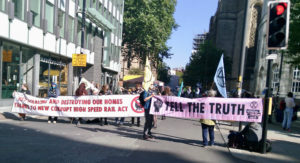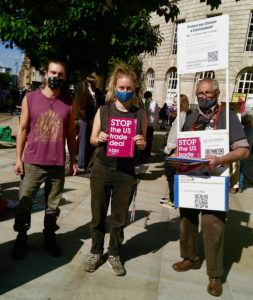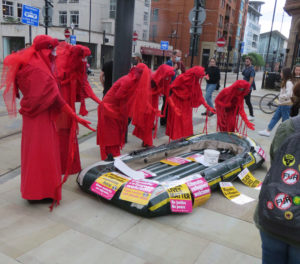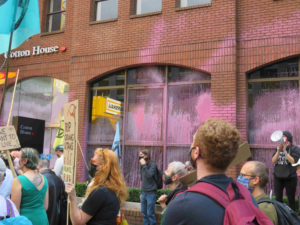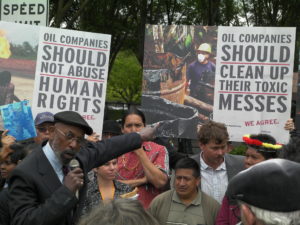
As coronavirus takes lives, devastates families and destroys businesses, some are planning to reap profits from the disaster. No, I’m not referring to the usual suspects, supermarkets, internet giants and delivery companies, but to secretive cabals of corporate lawyers, who form the arbitrations system for international trade disputes. These corporate courts are heavily biased in favour of transnational capitalist corporations and against the rights of ordinary people and the sustainability of the natural environment.
And they have immense power. Currently, Pakistan faces the confiscation of its assets abroad, including hotels and aircraft owned by the state airline, because of a totally unrelated dispute over a copper mine. Meanwhile, another mining company is planning to sue Tanzania. What is going on?
Poisoning the Rainforest
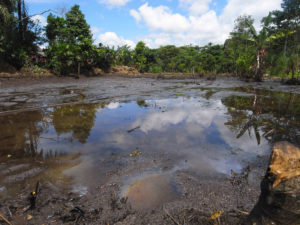
For over 20 years, from 1972 to 1993, the US oil company Texaco spilled 30bn gallons of crude oil and other waste into the Amazon rainforest in Ecuador. Ordered by the Ecuadorian courts to clear up the mess, parent company Chevron simply took their case to an ISDS tribunal, which agreed with them that they had no liability. The environment suffered a double whammy, while rainforest was poisoned, the extracted oil was burned to produce more greenhouse gasses. Meanwhile, people in the affected area are forced to live with Chevrons filthy legacy of oil polluted water.
Act now to demand real justice in international trade
What are corporate courts?
‘Corporate courts’ are a tribunals run by corporate lawyers for the benefit of giant trans-national corporations (TNCs) and rich investors. They allow foreign companies to sue national governments and overrule domestic laws and regulations that reduce their profitability. They are used by the powerful TNCs to prevent regulations protecting consumers, workers, livestock or the environment.

Nick Dearden of Global Justice Now has pointed out:
Putting cigarettes in plain packaging, banning dangerous chemicals, raising the minimum wage, stopping toxic power plants being built – anything that might affect big business’s bottom line can lead to a claim being lodged.
The Brexit deal that the UK has recently signed with the EU does not include a corporate court clause, but many of the deals which are being currently signed do contain them, and corporate lobbyists are pressing the Government to make corporate courts part of any trade deal which the Government now signs.

Fracking Canada
Time and time again, corporate courts find against local communities and environmental interests in favour of corporate profits. In 2011, in response to public pressure, the Provincial Government of Quebec severely restricted fracking and other hydrocarbon extraction activities in its territory. A company called Lone Pine, which had been given exploration permits, objected. Lone Pine is actually based in Canada, but because it is formally registered in the US, it was able to use the ISDS system to demand compensation.
Act now to demand real justice in international trade
Key features of corporate courts (ISDS, ICS)

- They usually meet in secret;
- Only foreign companies can lodge claims, typically against national governments;
- Ordinary citizens, domestic companies, trade unions, watchdogs and even national governments are barred from taking action through these courts;
- There are not usually presided over by qualified judges, the cases are heard by corporate lawyers;
- Court officials are paid by the hour, giving them a vested interest in awarding claims in order to attract more work;
- They operate independently of national judicial systems;
- There is usually no right of appeal.
Act now to demand real justice in international trade
France’s environmental law
But polluting companies don’t only use ISDS to demand compensation. They can also use it to directly influence government policy.
In 2017 environmental activist Nicolas Hulot became France’s Environment Minister. In July, he brought forward the draft of an ambitious law which would have ended fossil fuel extraction on all French territory by 2040. Some projects would have ended as soon as 2021 and only a few would remain by 2030.
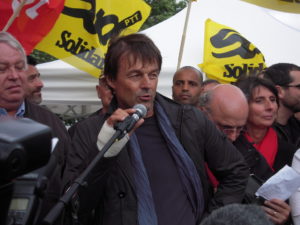
In August 2017, the French Council of State received notice from lawyers representing the Canadian oil and gas company Vermilion, threatening to take action through the ISDS system if their investments were threatened. Vermilion is responsible for 75% of French oil production.
By September, Hulot’s law had been effectively neutered. The draft now allowed for the renewal of oil exploitation permits until 2040. Existing projects would continue unhindered for the next 20 years. The final version of the law even allowed exploitation permits to be renewed after the 2040 deadline.
A year later, Hulot resigned his post, citing the excessive influence of corporate lobbyists on environmental policy making.
Origin
The ISDS system of corporate courts first came to prominence as part of the North American Free Trade Agreement (NAFTA) in 1994. It has a deeply unpleasant history. In one of its first cases, the US company Ethyl sued the Canadian Government to allow the use of a known human neurotoxin in its product. Despite the ingredient being banned in its home country, the USA, Ethyl was able to bully the Canadians into allowing them to use the neurotoxin.
The Australian tobacco scandal

In 2011, the tobacco giant Altria Group, owners of Philip Morris International, took the Australian Government to court in an attempt to prevent the introduction of ‘plain packaging’ laws. Although the Australian High Court kicked out their claim, Alteria pursued it through the corporate court set up by a trade treaty that Australia had made with Hong Kong. Again they lost, but this time on a technicality. Alteria had attempted to use a shell company to pursue its claim. However, the company was not registered at the time that the laws were introduced.
The legal costs, paid by the Australian taxpayer, amounted to Aus$50 million. This was enough of a victory for the tobacco companies. Using the threat of such court cases, they have bullied poorer countries such as Uruguay and Togo into backing down on anti-tobacco legislation.
Watch comedian John Oliver explain how Big Tobacco uses corporate courts to bully small countries
TTIP, CETA and ICS
When all else fails, change the name…
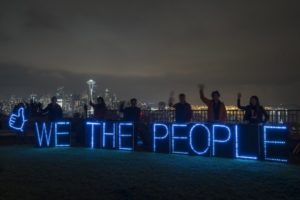
The courts go under several names, most notably ISDS (Investor-State Dispute Settlement), or ICS (Investment Court System).
The Stop-TTIP and Stop-CETA movements won some concessions on corporate courts. The Investment Court System (ICS) which is incorporated into the CETA treaty does, at least, require that cases are heard by real judges, rather than corporate lawyers. However, the judges will still be paid by the hour, creating a perverse incentive to find in favour of the corporate litigant.
According to the Deutscher Richterbund, Germany’s largest association of judges and public prosecutors:
“Neither the proposed procedure for the appointment of judges of the ICS nor their position meet the international requirements for the independence of courts.”

ISDS, in its modified form of Investor Court System (ICS):
- Rewards judges for finding in favour of corporations
- Promotes legal creativity through vague provisions such as protection for the ‘legitimate expectations’ of corporate investors
- Has no limits on the amount of compensation that can be paid to investors
- Causes regulatory chill, by making it risky for governments to to legislate for environmental, public health or workplace protection
The corporate lobby think they can hoodwink ordinary people by changing the name of the system. We think they’re wrong.
Drilling in the Adriatic
When UK based Rockhopper Exploration began sinking test drills in the Adriatic, citizens of Italy’s idyllic Abruzzo region were horrified. For a region with a heavy investment in tourism, the prospect of a new oil industry just offshore was an immediate threat to jobs and businesses, to say nothing of the long term environmental destruction.
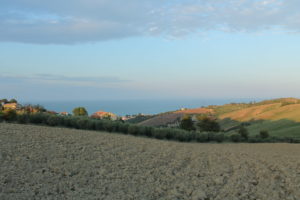
In increasingly large numbers, tens of thousands protested on the streets demanding government action and in 2017 the Italian Government responded, refusing Rockhopper a license to drill and placing a moratorium on all future operations off the Italian coast.
Rockhopper is claiming up to US$350m compensation through the ISDS procedure. This is 7x what they have invested in exploration.
Act now to demand real justice in international trade
Uniper v the Netherlands

German based company Uniper is threatening the Dutch government following its decision to ban coal-based power generation by 2030. This would force Uniper to close its new coal-fired plant, which it hopes to keep running until 2056. It seems that the company is claiming that a transition to biomass is not viable.
The action would use the controversial Energy Charter Treaty which has triggered more ISDS claims than any other trade agreement.
Where we stand today
The UK has been identified as one of the major centres of activity for carpetbagging corporate lawyers seeking to exploit international trade deals to promote the agenda of the TNCs.
- Corporate courts are increasingly being used to resist the switch away from climate changing hydrocarbons, as big oil corporations attempt to protect their profits.
- Paper companies, which allow tTNCs to pretend they are operating in a country even when they are not, are still being used to gain access to the corporate court system. South Korea alone has signed 99 separate trade agreements which allow this practice.
- The system is still being used to bully poorer countries, some of whom struggle to fund even the costs of litigation.
